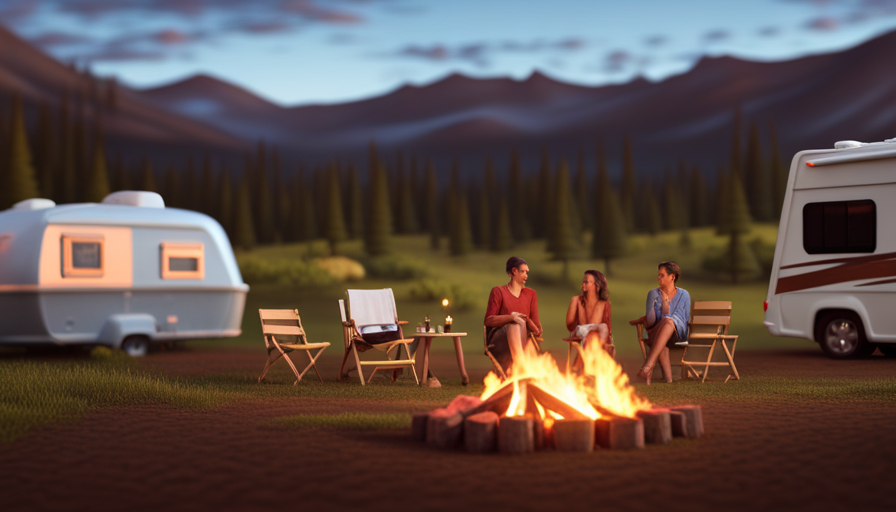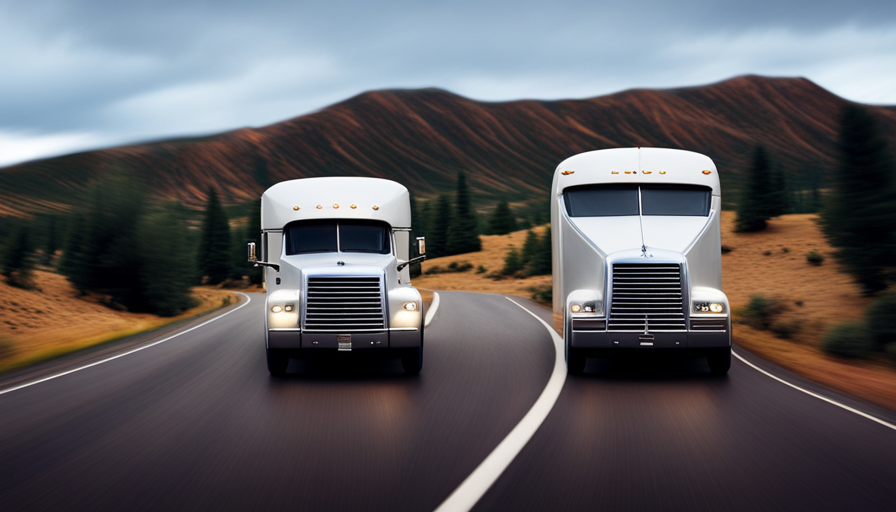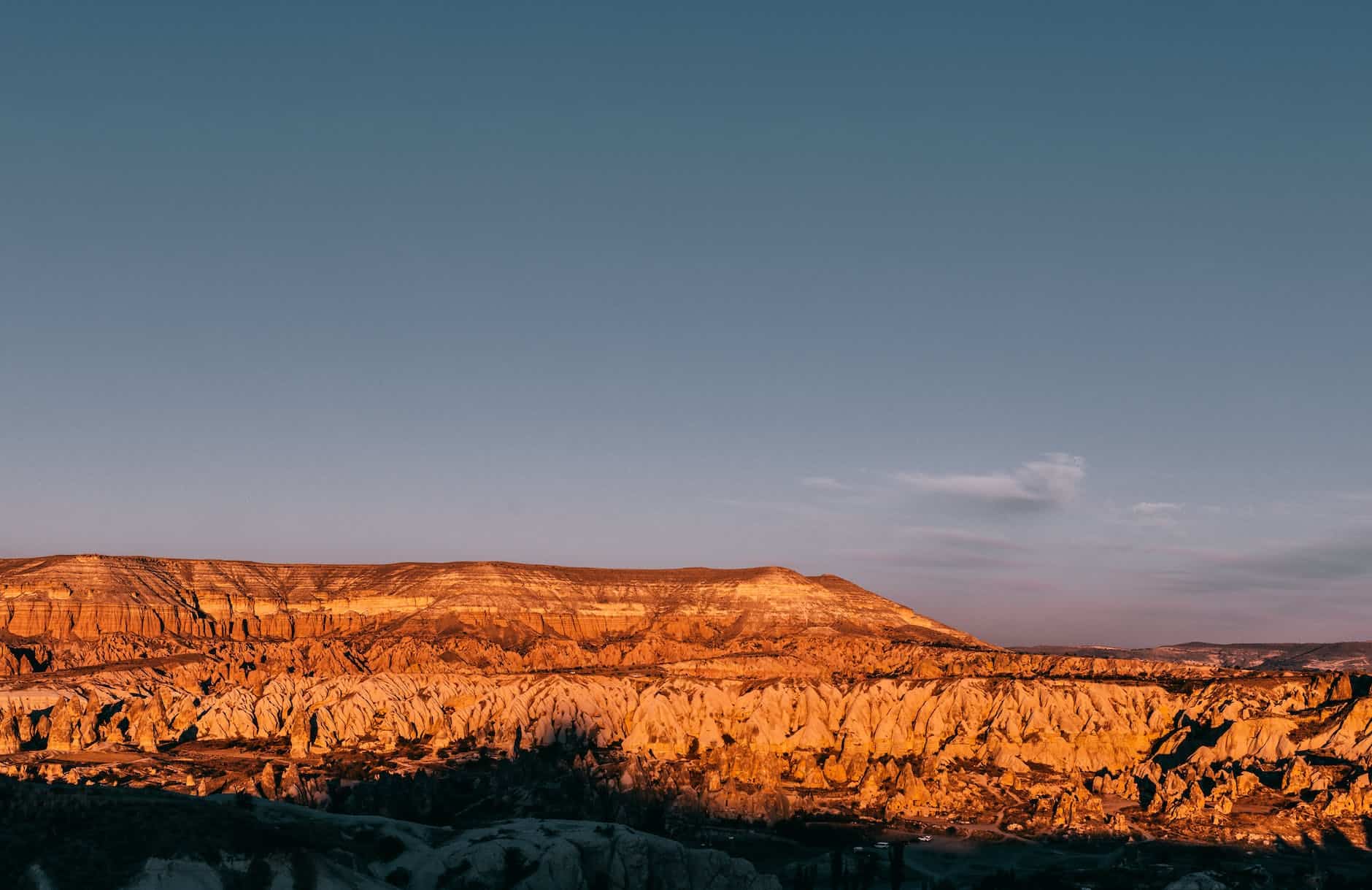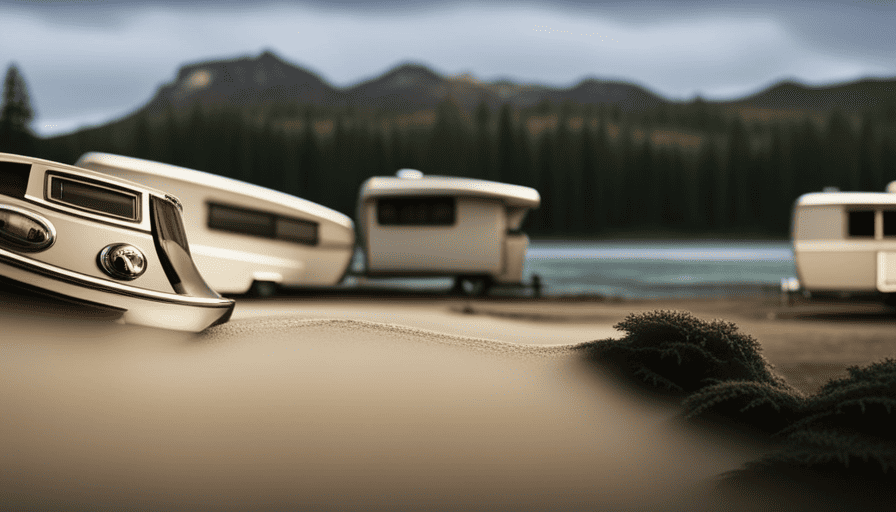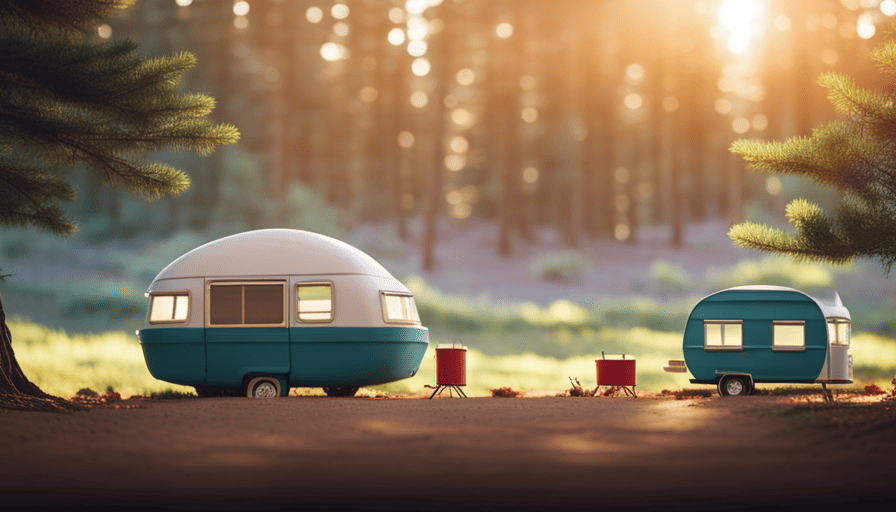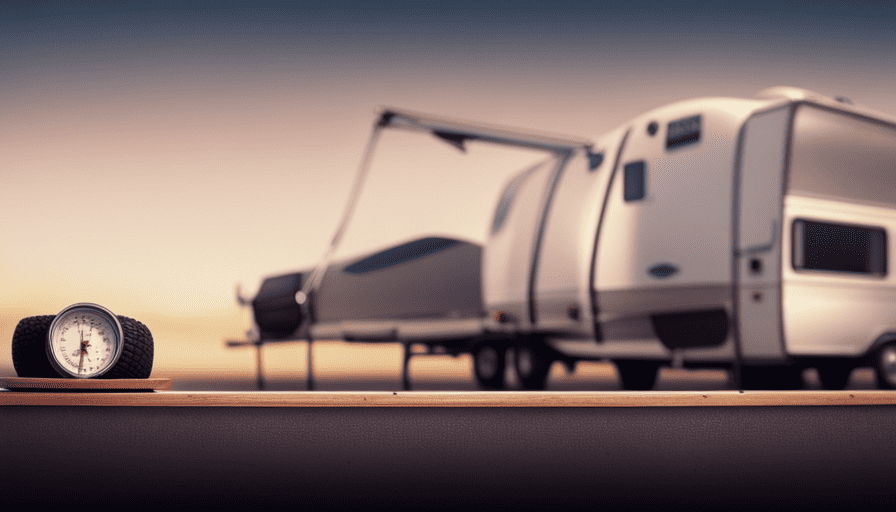Have you ever felt drawn to the wilderness, craving an adventure off the beaten path? If so, you’re not alone. Many of us have a strong desire to explore the world around us, and camping is a great way to satisfy that urge. But before you embark on your journey, you need to ask yourself one important question: which type of camper is right for me?
Finding the perfect camper can feel like searching for a needle in a haystack. With so many options available, it’s easy to get overwhelmed. That’s why we’re here to help. In this article, we’ll guide you through the process of choosing the ideal camper for your needs.
Imagine this: you’re driving down a scenic road, surrounded by breathtaking landscapes. The wind is in your hair, and the freedom of the open road is at your fingertips. It’s the perfect metaphor for the camper lifestyle – a world of endless possibilities and unforgettable experiences.
So, buckle up and get ready to embark on a journey to find the camper that’s right for you. We’ll walk you through everything you need to consider, from your camping style and travel needs to the size and budget. By the end, you’ll have the knowledge and confidence to make an informed decision.
Let’s hit the road together and find your perfect camper.
Key Takeaways
- Consider camping style and preferences for gear and destinations
- Assess travel needs and types of places to visit
- Set a budget to determine spending limit
- Research different types of campers and choose one that suits needs and budget
Consider Your Camping Style
Think about how you like to camp and what kind of experiences you want to have, because that’s going to help you figure out what kind of camper is right for you.
When considering your camping style, it’s important to take into account your preferences for camping gear and camping destinations.
First, think about the type of camping gear you enjoy using. Are you someone who likes to rough it with minimal equipment, or do you prefer the comforts of a fully-equipped RV? If you enjoy the challenge of setting up a tent and cooking over a campfire, then a more basic camper might be the right choice for you. On the other hand, if you prefer the convenience of a camper that comes with all the amenities, such as a kitchenette and bathroom, then a larger RV might be the better option.
Additionally, consider the types of camping destinations you enjoy. Do you prefer camping in remote, off-the-grid locations, or do you prefer to stay in established campgrounds with access to facilities and activities? This will help determine the size and capabilities of the camper you need.
Assessing your travel needs is the next step in finding the right camper for you.
Assess Your Travel Needs
Consider the winding roads of adventure and the destinations that call to our wanderlust-filled hearts. When assessing our travel needs, it’s important to think about the various travel destinations we plan to explore. Are we drawn to remote wilderness areas or bustling city centers? Do we prefer camping near the beach or in the mountains? Understanding the types of places we want to visit will help us determine what camper is right for us.
Additionally, we should consider our packing essentials. Are we minimalists who only need the bare necessities, or do we enjoy bringing along all the comforts of home? Some campers offer ample storage space for gear and supplies, while others prioritize a compact and lightweight design.
By considering our travel destinations and packing essentials, we can narrow down the options and choose the camper that best suits our needs. Next, we will delve into the importance of selecting the right size camper for our adventures. Remember, finding the perfect fit for our travel needs is essential to ensuring a comfortable and enjoyable camping experience.
Choose the Right Size
When choosing the right size for a camper, we need to consider both the length and width. The length will determine how much living space we have, while the width will affect how comfortable we feel inside.
Additionally, we should also determine if we need slide-outs for additional space. Slide-outs can provide extra room for activities and make the camper feel more spacious.
Consider the length and width of the camper
To determine the right camper for you, take into account the dimensions of both length and width. When considering the size of a camper, it’s important to understand the pros and cons of length versus width.
Here are three things to consider:
-
Length vs. Width: Longer campers can offer more living and storage space, but they may be more challenging to maneuver and park. On the other hand, wider campers can provide more interior room and stability, but they may not fit in narrower campsites.
-
Weight Considerations: Longer and wider campers are generally heavier, so it’s crucial to consider your vehicle’s towing capacity. Ensure that your vehicle can handle the weight of the camper you choose.
-
Pros and Cons of Slide-outs: Slide-outs can provide additional space when parked but can add weight and reduce maneuverability when on the road.
By considering the dimensions of length and width, as well as weight and towing capacity, you can determine if you need slide-outs for additional space.
Determine if you need slide-outs for additional space
If you want to maximize your living space and create a more open and spacious environment, slide-outs can be a game-changer. Slide-outs are sections of the camper that can be extended outward, increasing the interior space.
The benefits of slide-outs are undeniable. They provide extra room for activities, furniture, and storage, making your camping experience more comfortable. You can have a larger kitchen, a bigger dining area, or even a separate bedroom.
However, there are a few disadvantages to consider as well. Slide-outs can add weight to the camper, potentially affecting its towing capacity. They also require additional maintenance and can be prone to leaks.
Despite these drawbacks, slide-outs are a popular choice for those seeking extra space and flexibility.
Now that you’ve considered the length, width, and slide-outs, it’s time to set a budget for your camper purchase.
Set a Budget
When setting a budget for a camper, we need to determine how much we’re willing to spend.
It’s important to consider both the upfront cost of purchasing a camper and the ongoing costs of maintenance and insurance.
By taking into account these factors, we can make an informed decision that fits our financial goals and ensures we can enjoy our camper without any unexpected financial burdens.
Determine how much you are willing to spend on a camper
Consider how much you’re willing to shell out for a camper and let it tug at your heartstrings. When it comes to cost considerations, setting a budget is crucial. Determine the maximum amount you are comfortable spending on a camper, taking into account your financial situation and any financing options that may be available to you.
Remember to factor in not just the initial purchase price, but also any additional expenses such as taxes, registration fees, and potential upgrades or repairs. Keep in mind that a camper is an investment, and it’s important to find the right balance between your budget and your desired features.
As you think about the costs, it’s also essential to consider the costs of maintenance and insurance. These ongoing expenses should be factored into your overall budget to ensure that you can afford to enjoy your camper for years to come.
Consider the costs of maintenance and insurance
Taking into account the ongoing expenses, it’s essential to factor in the costs of maintenance and insurance while budgeting for your camper.
Maintenance costs can vary depending on the type and age of the camper. Regular maintenance tasks such as oil changes, tire rotations, and brake inspections are necessary to keep your camper in good working condition. Additionally, you may need to budget for repairs and replacements of parts that may wear out over time.
Insurance coverage is another important consideration. It’s crucial to have proper insurance to protect your investment and provide coverage in case of accidents or damages.
Research different types of campers to find the one that suits your needs and budget.
Research Different Types of Campers
If you’re wondering which camper is right for you, have you explored the different types available? There are several different camper styles to choose from, each with their own pros and cons.
Here are three sub-lists to help you navigate the options:
-
Pop-up campers:
- Pros: Lightweight and easy to tow, affordable, compact storage when not in use.
- Cons: Limited insulation, less space and amenities compared to other types, can be difficult to set up.
-
Travel trailers:
- Pros: Spacious and comfortable, a wide range of sizes and floor plans available, can be towed by a variety of vehicles.
- Cons: Requires a vehicle with towing capacity, can be more expensive than pop-up campers, may need additional equipment for leveling and stabilization.
-
Class B motorhomes:
- Pros: Compact and easy to maneuver, can be used as a daily driver, improved fuel efficiency compared to larger motorhomes.
- Cons: Limited living space, fewer amenities compared to larger motorhomes, may require additional vehicle insurance.
Exploring the different types of campers will help you make an informed decision based on your needs and preferences. Once you’ve narrowed down your options, the next step is to read reviews and seek recommendations to ensure you choose the camper that will best suit your lifestyle.
Read Reviews and Seek Recommendations
After researching different types of campers, we’re now moving on to the next step in finding the perfect camper for us: reading reviews and seeking recommendations.
This is an important part of the process as it allows us to gather valuable insights and opinions from those who have firsthand experience with different campers.
One way to gather information is by reading online forums dedicated to camping and RVing. These forums are filled with discussions and reviews from fellow campers who are more than willing to share their experiences and provide recommendations. Reading through these forums can give us a better understanding of the pros and cons of different camper models and brands.
Another great source of recommendations is our friends and family who are avid campers. They can provide us with firsthand information about the campers they’ve used and give us honest feedback about their experiences. Asking for their recommendations can help us narrow down our options and make a more informed decision.
By reading reviews and seeking recommendations, we can gather valuable insights and opinions that’ll help us in our camper search. But don’t stop here! The next step is to visit dealerships or rental facilities, where we can see the campers up close and personal, and make a decision based on our own preferences and needs.
Visit Dealerships or Rental Facilities
Now that we’ve gathered valuable insights and recommendations, it’s time to immerse ourselves in the world of campers by visiting dealerships or rental facilities. This step is crucial in helping us make an informed decision about which camper is right for us.
By physically going to these places, we can get a firsthand look at the different types of campers available and have the opportunity to ask questions to knowledgeable staff. Visiting dealerships allows us to explore a wide range of campers, from compact trailers to spacious motorhomes. We can examine the various floor plans, amenities, and features each camper offers.
Rental facilities also provide a great opportunity to test drive different models, giving us a feel for how they handle on the road and if they meet our comfort and space requirements.
During these visits, we should take notes, compare prices, and gather as much information as possible. This will help us narrow down our choices and determine which campers align with our needs and budget.
Once we have explored the options at dealerships and rental facilities, we can move on to the next step: checking for necessary features.
By visiting dealerships and rental facilities, we can gain a deeper understanding of the campers available to us.
Now, let’s move on to the next section and learn how to check for necessary features.
Check for Necessary Features
Before you visit dealerships or rental facilities, it’s important to know that 85% of campers prioritize having a comfortable sleeping area and a functional kitchen. Assessing features and comparing options will help you determine which camper is right for you.
When it comes to the sleeping area, consider the size and layout. Do you need a queen-sized bed or are twin beds sufficient? Is there enough headroom for you to comfortably sit up? Additionally, check for storage space. Are there cabinets or drawers to keep your belongings organized?
Moving on to the kitchen, evaluate the appliances and amenities provided. Does the camper have a stove, oven, or microwave? Is there a refrigerator to store perishable items? Also, consider the counter space available for meal preparation.
Other features to assess include bathroom facilities, seating areas, and entertainment options. By comparing these features, you can narrow down your options and find the camper that best suits your needs.
As you consider long-term use, it’s essential to think about durability, maintenance requirements, and potential resale value. This will help ensure that your camper remains a practical and enjoyable investment for years to come.
Consider Long-Term Use
When considering which camper is right for us, it’s important to think about our long-term use. Are we planning to use it for occasional trips or do we envision living in it full-time? This decision will impact the features and amenities we prioritize in our search.
Additionally, we should also consider the durability and longevity of the camper. Investing in a well-built and sturdy camper will ensure that it can withstand the rigors of frequent use and last for many years to come.
Determine if you plan to use the camper for occasional trips or full-time living
Decide if you want to use the camper for occasional trips or live in it full-time. This decision will greatly impact the type of camper that’s right for you. Consider your budget and assess how much you’re willing to spend on a camper. Remember to also factor in the ongoing maintenance costs associated with owning a camper.
When comparing maintenance costs, keep in mind that larger campers may require more maintenance and repairs, which can add up over time. Additionally, consider the durability and longevity of the camper. Some campers are built to withstand the elements and frequent use, while others may not hold up as well.
Transitioning into the next section, it’s important to consider the durability and longevity of the camper when making your decision.
Consider the durability and longevity of the camper
To ensure your investment stands the test of time, it’s crucial to consider the durability and longevity of the camper. As the saying goes, ‘You get what you pay for.’ When it comes to campers, this couldn’t be truer.
Durability considerations should be at the top of your list when choosing the right camper for your needs. Look for materials that are built to withstand various weather conditions and rough terrain. Pay attention to the construction and quality of the camper, as well as the reputation of the manufacturer.
Longevity factors, such as the warranty and maintenance requirements, should also be taken into account. By carefully considering these aspects, you can ensure that your camper will last for years to come. Making an informed decision about which camper to choose is essential to ensure a satisfying and lasting camping experience.
Make an Informed Decision
Choosing the right camper involves gathering all the necessary information so you can make a decision that suits your needs. When considering the durability and longevity of the camper, it’s essential to make an informed decision. This means taking into account various factors, such as the quality of materials used, the reputation of the manufacturer, and customer reviews.
One important aspect to consider is how well the camper can withstand the rigors of outdoor activities. You want a camper that can handle rough terrains, changing weather conditions, and other challenges that come with camping. Additionally, it’s crucial to choose a camper that’s built to last. Look for features like a sturdy frame, quality construction, and reliable components.
Another factor to keep in mind is the longevity of the camper. You want a camper that’ll stand the test of time and provide you with many years of enjoyment. Consider the reputation of the manufacturer, as well as the warranty and after-sales service they offer. A camper from a reputable brand with a solid warranty can give you peace of mind knowing that you’re making a wise investment.
When making a decision about the right camper for you, it’s important to gather all the necessary information and consider the durability and longevity of the camper. By doing so, you can choose a camper that’ll not only meet your needs but also provide you with a reliable and enjoyable camping experience. So, take your time, do your research, and make an informed decision that’ll allow you to fully enjoy your camping adventures.
Frequently Asked Questions
What are the best camping destinations for different types of campers?
When it comes to finding the best camping destinations for different types of campers, it’s all about finding the right balance between adventure and comfort. Whether you’re a hardcore outdoors enthusiast looking for rugged terrain or a family with kids in tow, there are plenty of options.
For those seeking the best camping gear, consider destinations like Yosemite National Park or the Appalachian Trail. And if you’re camping with kids, places like Yellowstone or the Great Smoky Mountains offer a mix of nature and family-friendly amenities.
Are there any specific safety features to look for in a camper?
When looking for a camper, it’s important to consider safety features and camper specifications.
Some key safety features to look for include smoke alarms, carbon monoxide detectors, and fire extinguishers.
It’s also important to check the condition of the tires, brakes, and electrical systems.
Camper specifications such as size, weight, and towing capacity are essential to ensure a safe and comfortable experience.
By prioritizing safety features and considering camper specifications, you can make an informed decision when choosing a camper.
How do I properly maintain and care for a camper?
Maintaining and caring for a camper is essential to prolong its lifespan and ensure a smooth camping experience. Here are some camper maintenance tips:
- Regularly inspect the roof for leaks.
- Clean and treat the exterior to prevent damage.
- Check and service the tires.
- Winterize the camper when not in use.
For efficient camper storage solutions, consider using covers, indoor storage, or renting a dedicated storage space. Remember, proper maintenance and storage will keep your camper in top shape for years to come.
Interesting statistic: Did you know that regular maintenance can increase the resale value of a camper by up to 30%?
Can I customize or modify a camper to fit my specific needs?
Yes, you can customize or modify a camper to fit your specific needs. There are various customizing options and camper modifications available to make it more suitable for your preferences and lifestyle. You can add extra storage spaces, upgrade the interior, install solar panels for off-grid power, or even change the layout to better accommodate your requirements. These modifications can enhance your overall camping experience and make your camper truly personalized.
Are there any legal requirements or permits needed for using a camper in certain areas?
Yes, there may be legal requirements and permits needed for using a camper in certain areas. It’s important to research and understand the specific regulations for each location you plan to visit.
Some areas may have restrictions on where you can park or camp, while others may require permits for overnight stays. It’s advisable to contact the local authorities or check their websites to ensure compliance with the applicable laws and obtain any necessary permits.
What Should I Consider When Choosing the Right Camper for Me?
When looking for the perfect camper, take the time to ask the right used camper buying questions. Consider factors such as size, amenities, and budget. Make sure to inquire about the vehicle’s history, maintenance records, and any potential issues. With thorough research, you can find the ideal camper for your needs.
Conclusion
After considering our camping style, travel needs, budget, and necessary features, we were able to make an informed decision on the right camper for us.
It’s like finding the perfect puzzle piece that seamlessly fits into our outdoor adventures. With our new camper, we can now embark on countless excursions, creating memories that will be as vivid as the colors of a breathtaking sunset.
So, go ahead and find your own puzzle piece, and let the adventures begin!

